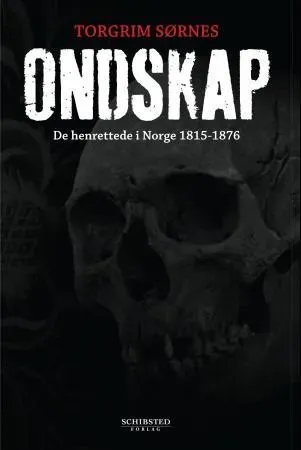
Evil explores Norway's grim history of executions
Delve into 19th century Norway, where executions sparked both fear and fascination. The book 'Ondskap' uncovers the judicial system's dark secrets.
The fascinating and terrifying role of executions in 19th century Norway
In 19th century Norway, executions were not just punishments but public events that instilled both fear and intriguing fascination. In the book 'Ondskap - the Executed in Norway 1815–1876', Torgrim Sørnes delves into 39 court cases leading to executions, depicting a grim chapter of Norwegian history with an intensity that provokes horror and reflection. Published in 2009 by Schibsted, the work presents a meticulous reconstruction of the social and legal landscape of the time, where economic disputes were often cloaked as moral decay by a class-ridden judicial system. Sørnes, a Norwegian doctor and amateur historian, uses court records and newspaper sources to provide an in-depth insight into these fateful judgments. The book is available on academic platforms and in Norwegian bookstores, representing an important part of the country's legal history.
Criticism of Sørnes' straightforward approach to justice in the book
The straightforward detailing in Sørnes’ work illustrates how the mechanisms of the legal system and social dynamics ignited violence and crime in an era marked by hardship and inequality. However, the book has faced criticism for its close ties to original sources without challenging contemporary perspectives on justice. While Sørnes succeeds in bringing the raw reality of the past to life through court sources, the question remains whether he fully contextualizes the social injustices his main characters endure. Here lies both his strength and weakness. While his detailed descriptions demonstrate deep immersion in the material, they also leave the reader with questions about the ethical aspects of historical practice.
Ondskap as both storyteller and critic of the death penalty
The book's significance lies in its dual role as storyteller and social critic. It revives the debate on the ethical dilemmas of the death penalty and sheds light on the socio-economic disparities that have shaped understandings of justice both past and present. In contrast to today's true-crime formats, which often focus on entertainment, 'Ondskap' offers a grim authenticity and reflection on a justice system where nightmarish fates were played out for society with both bloody seriousness and relentless justice. Sørnes’ work provides thought-provoking reflection on how we interpret the past and the judgments, both legal and social, that we continue to make in today's light.
Read 'Ondskap' at akademika.no – and follow us for more in-depth true-crime analyses that go beyond the headlines.
Susanne Sperling
Admin
Redaktør